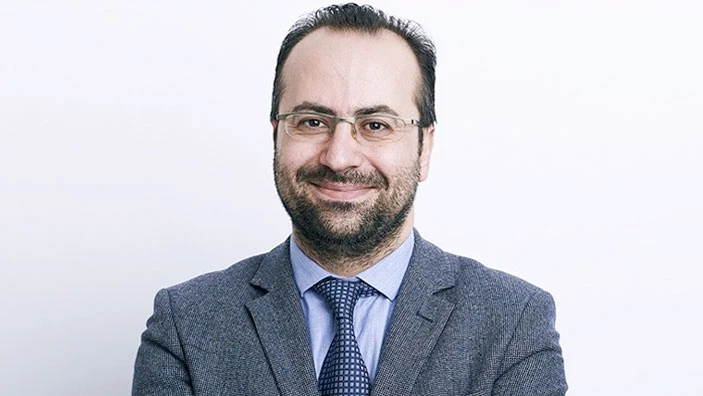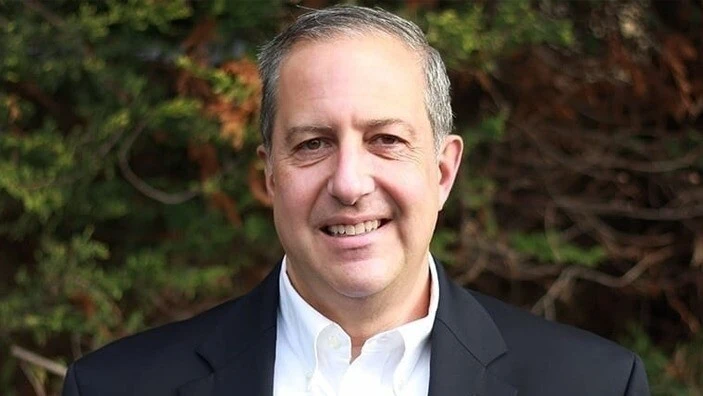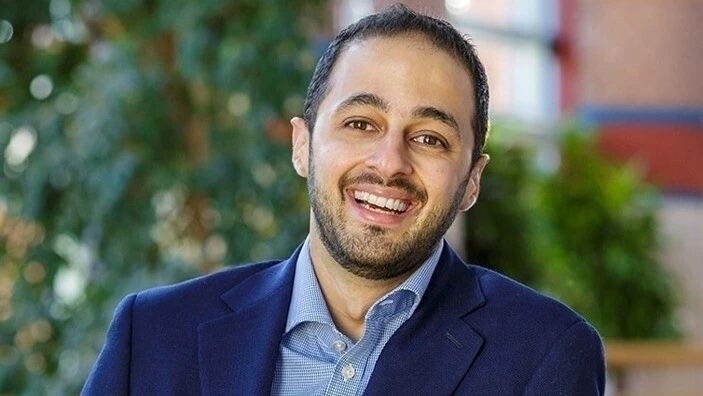Green Finance: Strategies for Sustainable Investment
Sustainable finance is fundamentally about factoring environmental risks and opportunities into financial decision-making. This 3-day programme teaches you how to evaluate and implement sustainable investment strategies – from ESG screening and green bonds to carbon pricing and climate risk assessment. It is designed for finance professionals who need tools to incorporate environmental factors into corporate investment and capital market financing decisions.
Upcoming programmes
Format:
Dates:
Duration:
Fees:
Face-to-face
18-20 Jun 2025
3 days
£4,550 + VAT
Upcoming programmes
Format:
Face-to-face
Dates:
18-20 Jun 2025
Duration:
3 days
Fees:
£4,550 + VAT
Overview
This programme connects core sustainable finance concepts with real-world investment and risk management decisions. You’ll learn how to assess and price climate-related risks in investment portfolios, evaluate ESG integration strategies and their impact on returns, navigate emerging geopolitical risks and new regulatory frameworks, and analyse green bonds and other sustainable financial instruments.
The curriculum links these elements through a practical investment framework: identify environmental risks and opportunities, quantify their financial impact, and develop appropriate investment or lending strategies. We use current market cases and hands-on exercises with ESG data and analytics tools.
While we cover broader topics like corporate social responsibility and diversity, our focus stays on their measurable financial implications. You’ll leave with concrete tools to integrate sustainability factors into your investment process.
Benefits and career impact
- Integrate material ESG factors to improve risk management and access to capital.
- Capitalise on growth opportunities in renewable energy, green buildings, etc.
- Futureproof portfolios against climate risks through decarbonisation strategies.
- Evaluate diversity and social impacts on investment valuations and returns.
- Stay ahead of rising sustainability reporting regulations like CSRD.
- Drive long-term value by adhering to sustainability best practices.
- Master innovative instruments like green bonds and sustainability-linked loans.
- Align investments with environmental/social goals like climate action and SDGs.
- Strengthen risk management and improve access to capital through ESG integration.
- Capitalise on growth in sustainable sectors like renewable energy.
- Futureproof against climate risks by aligning portfolios with decarbonisation.
- Enhance operational efficiency and stakeholder relationships through ESG factors.
- Lead the industry by staying ahead of sustainability reporting regulations.
- Access new financing through innovative climate linked instruments.
- Contribute to environmental stewardship and achieve sustainability goals.
- Attract and retain top ESG-conscious talent.
- Reduce costs through energy efficiency and sustainable business practices.
- Drive innovation by updating business models for sustainability alignment.
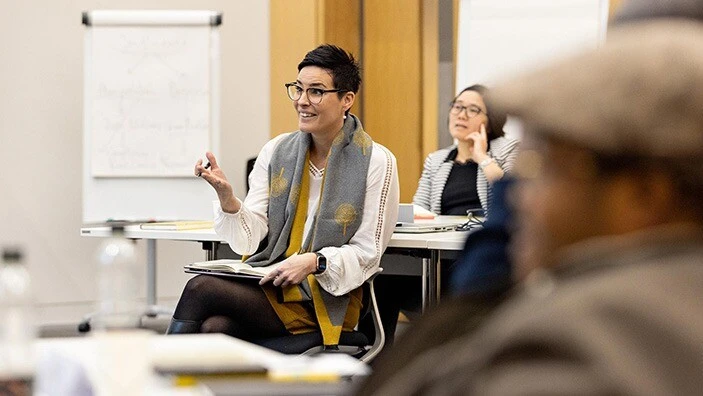
Sustainable finance is no longer optional – it's critical for navigating systemic risks and capitalising on opportunities in our rapidly changing world. This rigorous programme arms you with robust frameworks to integrate material ESG factors across the investment lifecycle. Through real-world case studies, you'll gain a comprehensive understanding of aligning financial strategies with environmental and social goals. This programme will help you in unlocking sustainable profits while driving positive impact. It is an investment in your future today.
Programme content
Module 1: Corporate social responsibility and sustainable finance
- Integrate CSR into investment strategies.
- Measure CSR impact.
- Navigate regulatory and reporting requirements.
Module 2: Investment decision making and ecological sustainability
- Assess environmental risk.
- Utilise green finance instruments.
- Incorporate ESG criteria.
Module 3: Economic realities of climate change
- Analyse climate impact on economic sectors.
- Evaluate financial implications of climate policies.
- Perform scenario analysis and stress testing.
Module 4: Transition to low carbon economy and just transition
- Develop pathways to a low carbon economy.
- Apply just transition principles.
- Identify investment opportunities in clean technologies.
Module 5: Diversity in sustainable finance and its impact on financial firms
- Enhance innovation and performance through diversity.
- Incorporate diverse perspectives on ESG issues.
- Create inclusive financial products.
Module 6: Sustainable investment strategies
- Implement impact investing.
- Integrate ESG considerations.
- Engage in active ownership.
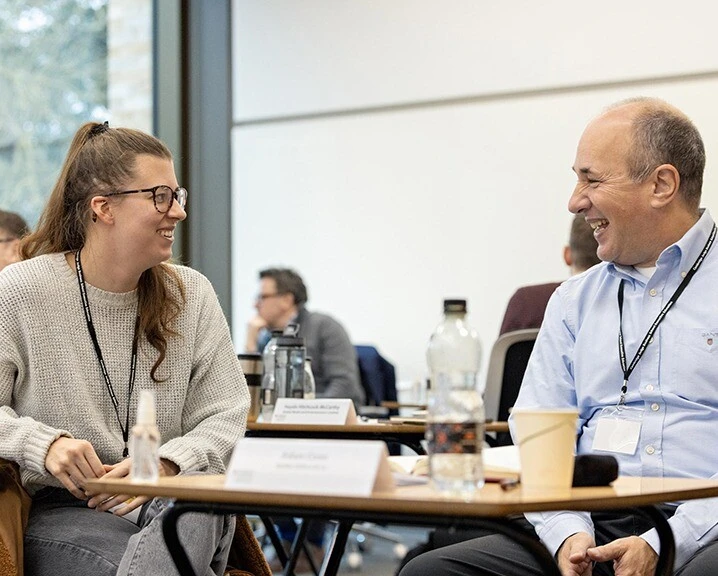
How you learn: Face-to-face
Immerse yourself in an inspirational learning environment in the historic and beautiful city of Cambridge. In an intense classroom-based experience, you will engage with faculty and peers in person. Join ‘Cambridge Union’-style debates, hear from guest speakers and faculty, and enjoy group exercises, role-play and informal conversations both in and outside class.
Who attends
- Investment managers, managers of large corporations, manufacturers, energy consumers, CO2 emitters.
- Investors and other stakeholders interested in sustainability.
- Bankers who are focused on meeting their sustainable finance targets.
- Operational staff within the finance team such as the CFO, Head of Finance, or Finance Manager.

This programme aims to inform, involve and inspire its participants regarding the fundamentals and multi-faceted aspects of sustainability. Learn from diverse Cambridge Judge Business School faculty and sustainability experts who will examine the complex and evolving landscape of sustainable finance, and the strategies and tools to navigate within this landscape. The programme has been designed to be interactive and collaborative to address the real and existing environmental and social challenges. Participants will have a deep understanding of the root causes of the current problems and debates, and discuss about the future of sustainability.
Faculty and speakers
Learn from our world-class faculty who bring fresh insights from their leading-edge research into all of our Executive Education programmes. The Academic Programme Directors (APDs) for the Green Finance programme are Professor Raghavendra (Raghu) Rau and Professor Oğuzhan Karakaş.
PhD (INSEAD)
Director of the MPhil in Finance Programme
Co-Director of the Centre for Endowment Asset Management (CEAM)
Director of the Executive Master of Accounting Programme
PhD (Wharton School of Business)
Vice Dean for Programmes
Co-Director, Centre for Financial Reporting and Accountability (CFRA)
PhD (Pennsylvania State University)
PhD (University of Cambridge)
Why Cambridge Judge Business School?
Related programmes
Green Finance: Strategies for Sustainable Investment belongs to our Finance-topic executive education programmes. Here is a selection of related programmes:
Sustainability and Circular Economy
The Circular Economy model requires firms in different sectors across the value chain to integrate disruptive technology and design business, and financial models that are based on longevity, renewability, reuse, repair, upgrade, refurbishment, serviceability, capacity sharing, and dematerialisation.
ESG Leadership Skills for Transition to Sustainable Business
The green transition is a strategy involving social and organisational change to help people adapt and transform their current practices in anticipation of a more environmentally sustainable future.
Cambridge Judge Business School General Management Certificate of Achievement
Looking for a flexible learning package tailored to your individual needs? Whether you want to step-up, startup or switch careers, Cambridge Judge Business School offers a bespoke Certificate of Achievement, dedicated to general management.
Speak to a programme advisor
If you have any questions or would like to discuss how this programme could benefit you or your organisation, please get in touch with the programme advisor.




